January is traditionally the time to make new year’s resolutions.
To accomplish his life’s goals, at the age of 25 ( about 290 years ago ), Benjamin Franklin developed and committed himself to a personal improvement program that consisted of 13 virtues.
How are these 18th century virtues still relevant in the 21st century ?
My 2023 new year’s resolution, is to try to implement them into my daily life.
You are invited to join me in practicing his daily routine for 2023.
First published in his Autobiography, 1793, he identified 13 specific virtues, Temperance, Silence, Order, Resolution, Frugality, Industry, Sincerity, Justice, Moderation, Cleanliness, Tranquility, Chastity, and Humility that he felt were important in helping him to achieve his goal, and he then developed a plan or program to work on these virtues on a daily basis.
Franklin’s personal improvement program was not just about practicing these virtues, but also about committing himself to a daily routine of developing and improving these virtues.
He believed that by focusing on these virtues and continually working to improve them, he would be better equipped to work towards becoming a better person and developing the skills and characteristics necessary to succeed.
This required discipline, self-control, and a commitment to consistent practice and improvement.
We will take a look at each of the 13 virtues, and his daily routine to put them into practice
Virtue 1. Temperance
“Eat not to dullness; drink not to elevation.”
“Eat not to dullness; drink not to elevation” is a phrase that advises moderation in consumption of food and drink. It suggests that one should avoid eating to the point of feeling sluggish or dull, and also avoid drinking to the point of becoming excessively intoxicated or elevated.
Why should I care about healthy eating ?
Improved overall health: Eating a healthy, balanced diet can help improve your overall physical and mental health. It can reduce your risk of developing chronic diseases such as heart disease, diabetes, and cancer, and can also improve your energy levels, mood, and sleep quality.
Weight management: Healthy eating can help you maintain a healthy weight or lose excess weight, which can improve your physical appearance and self-confidence. It can also reduce your risk of developing weight-related health issues such as high blood pressure and high cholesterol.
Better cognitive function: A healthy diet can improve brain function, including memory, focus, and concentration. It can also reduce the risk of cognitive decline and dementia in old age.
Increased productivity: Eating a healthy diet can give you the energy and focus you need to perform well at work or school. It can also improve your overall sense of well-being and motivation.
Personal satisfaction: Choosing healthy foods can give you a sense of accomplishment and satisfaction, as you are taking care of your body and making positive choices for your overall health.
Virtue 2. Silence:
“Speak not but what may benefit others or yourself; avoid trifling conversation.”
Speak not but what may benefit others or yourself means that you should only speak about things that will be helpful or beneficial to others or to yourself.
This means avoiding saying things that are not meaningful or useful, or that are simply for the sake of filling the conversation.
Why should I be careful what I say ?
Words can have a powerful impact on others. If you say something hurtful or offensive, it can cause harm and damage to others. It is important to consider the potential consequences of your words before you speak.
Your words can be used against you. If you say something that is inappropriate or untrue, it can come back to haunt you. This can be especially true if you make statements online, as they can be easily shared and spread.
It is important to be respectful of others. Even if you don’t agree with someone’s beliefs or opinions, it is important to be respectful and not say hurtful or harmful things.
Your words reflect on your character. The way you speak and communicate reflects on your personality and values. Being careful about what you say shows that you are thoughtful and considerate.
I would also include silence to social media posts that appear in your feed. Sometimes, it is far better to scroll-on than give a reply or make a comment. If you do feel the need to comment, let it pass three gates;
is it kind,
is it necessary,
is it truthful…
If your comment fails any one of these gates, scroll-on.
In short, it is important to be careful what you say because your words can have a significant impact on others, and can reflect on your character. It is always best to think before you speak and consider the potential consequences of your words.
Virtue 3. Order:
“Let all your things have their places; let each part of your business have its time.”
Let all your things have their places means that you should designate specific areas or locations for each of your belongings. This means that you should have a designated spot for your keys, phone, wallet, etc. and make sure to always put them back in their designated spot when you are done using them. This helps to keep your living or work space organized and clutter-free.
Why should I designate specific areas or locations for each of my belongings ?
Designating specific areas or locations for your belongings can help with organization and efficient use of space.
It allows you to easily locate items when needed and reduces clutter in your home or work environment. It also helps with maintaining cleanliness and preventing misplacement or loss of items.
Additionally, having designated areas for your belongings can help with time management, as you won’t have to waste time searching for items that are not in their designated location.
Overall, designating specific areas or locations for your belongings can improve the functionality and overall organization of your space.
Virtue 4. Resolution:
“Resolve to perform what you ought; perform without fail what you resolve.”
Resolve to perform what you ought refers to the act of making a commitment or determination to do something that is considered to be the right or proper thing to do. It involves making a conscious decision to take action and following through on that decision.
Why should I commitment to do something that is considered to be the right or proper thing to do ?
Personal integrity: By committing to doing what is right or proper, you are acting with integrity and upholding your personal values. This helps you to live a fulfilling and meaningful life.
Responsibility: It is your responsibility to act in a way that is fair and just. By committing to doing what is right or proper, you are fulfilling this responsibility and helping to create a more just and equitable society.
Respect: By committing to doing what is right or proper, you show respect for others and their rights. This helps to foster positive relationships and promotes a sense of community.
Personal growth: By committing to doing what is right or proper, you are challenging yourself to grow and become a better person. This helps you to develop character and become a more well-rounded individual.
In summary, committing to doing what is right or proper is important because it helps you to live a life of integrity, fulfil your responsibilities, show respect for others, and grow as a person.
Virtue 5. Frugality:
“Make no expense but to do good to others or yourself; i.e., waste nothing.”
Make no expense but to do good to others or yourself means that you should only spend money on things that will have a positive impact on others or yourself.
This means that you should not waste money on things that do not have any value or do not contribute to the well-being of others or yourself.
Why should I only spend money on things that will have a positive impact on others or myself ?
Financial responsibility: Spending money wisely and only on things that will bring value to your life or the lives of others is a key aspect of financial responsibility.
It ensures that you are using your resources wisely and avoiding unnecessary expenses that may not bring any long-term benefits.
Personal satisfaction: When you spend money on things that have a positive impact on your life or the lives of others, it brings a sense of personal satisfaction and fulfilment. This can help boost your overall well-being and happiness.
Helping others: Spending money on things that benefit others can have a ripple effect on the community and can help make the world a better place. Whether it’s supporting a local business or donating to a charitable cause, your spending can have a positive impact on others.
Long-term benefits: By spending money on things that have a positive impact on yourself or others, you are investing in your future and the future of those around you. This can lead to long-term benefits such as increased productivity, better relationships, and overall well-being.
Overall, it is important to only spend money on things that will have a positive impact on others or yourself because it is a responsible and fulfilling way to use your resources and can lead to long-term benefits for both yourself and the people around you.
Virtue 6. Industry:
“Lose no time; be always employed in something useful; cut off all unnecessary actions.”
Lose no time means to not waste any time and to be productive with every moment. It suggests that you should use your time wisely and not let it slip away without making progress or achieving something.
Being always employed in something useful means that you should always be doing something that is beneficial or has value.
It suggests that you should avoid activities that are unproductive or a waste of time.
Why should I use my time wisely and not let it slip away without making progress or achieving something ?
Time is a limited resource: Time is something that we can never get back, once it has passed it is gone forever. This is why it is important to use it wisely and not let it slip away without making progress or achieving something.
Opportunities may be missed: If we let time slip away without making progress or achieving something, we may miss out on opportunities that could have helped us reach our goals or improve our lives.
We may feel regret: If we let time slip away without making progress or achieving something, we may look back on our lives and regret not having used our time more wisely.
It can help us lead a more fulfilling life: By using our time wisely and making progress towards our goals, we can lead a more fulfilling and meaningful life.
It helps us become more efficient: When we use our time wisely and make progress towards our goals, we become more efficient and are able to achieve more in less time. This helps us make the most of our time and resources.
Virtue 7. Sincerity:
“Use no hurtful deceit; think innocently and justly, and, if you speak, speak accordingly.”
Use no hurtful deceit means to be honest and truthful and not to deceive or mislead others in a way that would cause them harm or pain.
It involves being sincere and genuine in our actions and words, and not manipulating or manipulating others for our own benefit.
Why should I not deceive or mislead others in a way that would cause them harm or pain ?
Deceiving or misleading others can cause harm or pain in several ways. Firstly, it can lead to a breakdown of trust between individuals or groups.
When someone is deceived or misled, they may feel betrayed and may struggle to trust others in the future.
This can lead to feelings of isolation, resentment, and anger, all of which can cause harm to the emotional well-being of the individual.
Secondly, deceiving or misleading others can also lead to tangible harm. For example, if someone is told incorrect information about a product or service, they may make a decision based on that misinformation that ends up causing them financial harm or physical harm.
Similarly, if someone is deceived or misled about a person’s intentions or actions, they may be placed in a dangerous or harmful situation.
Finally, deceiving or misleading others can also cause harm to society as a whole. For example, if someone is deceived or misled about a political issue or a social problem, they may be less likely to take action to address that issue, which can have negative consequences for the community.
Overall, it is important to be honest and truthful with others in order to avoid causing harm or pain.
Deception and misleading behaviour can have serious consequences and can lead to a lack of trust and respect between individuals and groups.
Virtue 8. Justice:
“Wrong none by doing injuries or omitting the benefits that are your duty.”
Wrongdoing none by doing injuries or omitting the benefits that are your duty means failing to fulfil a responsibility or obligation to do good or prevent harm.
This can involve actively causing harm or neglecting to take action that would prevent harm or provide benefits to others.
Why should I not fail to fulfil my responsibility or obligation to do good or prevent harm ?
It is the right thing to do: Doing good and preventing harm is a moral obligation that we have as human beings. It is our responsibility to ensure that we are not causing harm to others and that we are actively contributing to the betterment of society.
It helps to create a better world: By fulfilling our responsibility to do good and prevent harm, we can help to create a better world for ourselves and future generations. We can work towards creating a more inclusive, compassionate, and just society.
It fosters trust and respect: When we fulfil our responsibilities and obligations, we demonstrate that we are trustworthy and dependable. This helps to build trust and respect in our relationships and interactions with others.
It helps us to live up to our values: Failing to fulfil our responsibilities or obligations goes against our values and beliefs. By fulfilling our responsibilities, we can live in alignment with our values and beliefs and be true to ourselves.
It helps us to be accountable: By fulfilling our responsibilities, we are accountable for our actions and can be held accountable if we fail to do so. This helps to create a sense of personal responsibility and accountability, which are important for building a healthy and functional society.
Virtue 9. Moderation:
“Avoid extremes; forbear resenting injuries so much as you think they deserve.”
Avoiding extremes refers to the idea of not going to the extreme in any situation. This means that one should not let their emotions or actions get out of control and become extreme. Instead, it is important to remain balanced and level-headed in all situations.
Why should I not let my emotions or actions get out of control and become extreme ?
Extreme emotions and actions can harm others: If you become excessively angry or aggressive, you may end up hurting others physically or emotionally.
This can lead to conflicts and even legal consequences.
Extreme emotions and actions can harm yourself: Out of control emotions and actions can lead to self-harm or reckless behaviour. This can lead to physical injuries or even death.
Extreme emotions and actions can damage relationships: If you let your emotions or actions get out of control, you may damage your relationships with others. This can lead to isolation and loneliness.
Extreme emotions and actions can hinder personal growth: If you constantly let your emotions and actions get out of control, you may struggle to learn from your mistakes and grow as a person. This can lead to a lack of personal development and fulfilment.
Overall, it is important to control your emotions and actions in order to maintain healthy relationships, protect yourself and others, and continue to grow as a person.
Virtue 10. Cleanliness:
“Tolerate no uncleanliness in body, cloths, or habitation.”
Tolerate no uncleanliness in body, clothes, or habitation means that a person should not allow themselves or their surroundings to be dirty or unclean in any way.
This includes keeping their body clean by bathing regularly, washing their hands frequently, and maintaining good hygiene habits.
It also means keeping their clothes clean by washing them regularly and wearing clean, well-maintained clothing. Finally, it means maintaining a clean and orderly living space by regularly cleaning and organizing their home or living quarters.
Essentially, this virtue encourages a person to prioritize cleanliness in all aspects of their life in order to maintain good health and appearance.
[ remembering that this text was written at a time before running water and domestic hot water systems, so taking a bath and washing clothes was a big deal ]
Why should I not allow myself or my surroundings to be dirty or unclean in any way ?
Health: A dirty environment can harbour germs and bacteria that can cause illness or infections. Keeping yourself and your surroundings clean helps prevent the spread of disease and promotes good health.
Hygiene: Personal hygiene is important for maintaining good health and preventing the spread of illness. Allowing yourself to become dirty or unclean can lead to body odour, skin irritation, and other hygiene-related issues.
Comfort: A dirty or unclean environment can be unpleasant and uncomfortable to be in. Cleanliness helps to create a more pleasant and enjoyable living or working space.
Respect: Showing respect for oneself and others involves maintaining cleanliness and preventing dirt or uncleanliness in oneself and one’s surroundings. It is a way of showing consideration for others and not imposing one’s mess on them.
Appearance: A clean appearance and surroundings can contribute to a positive image and create a good impression on others. Allowing oneself or one’s surroundings to be dirty or unclean can give off a negative image and diminish the respect of others.
Virtue 11. Tranquility:
“Be not disturbed at trifles or at accidents common or unavoidable.”
Being “disturbed at trifles” refers to getting upset or agitated over small, insignificant matters. “Accidents common or unavoidable” refers to events that are either common occurrences or cannot be avoided or controlled.
Why I should not allow myself to get upset or stressed over small, insignificant issues or things that are out of their control ?
It can negatively impact your mental health: Getting upset or stressed over small things can lead to increased levels of anxiety and depression. These negative emotions can have long-term negative effects on your overall well-being.
It can waste your time and energy: Focusing on small, insignificant issues can take up valuable time and energy that could be better spent on more important tasks or activities.
It can affect your relationships: Allowing yourself to get upset or stressed over small issues can lead to conflicts with others and damage relationships.
It can lead to a lack of perspective: When you get upset or stressed over small things, it can be easy to lose sight of the bigger picture and the things that truly matter in your life.
Overall, allowing yourself to get upset or stressed over small, insignificant issues or things that are out of your control can have negative consequences on your mental health, relationships, and overall well-being.
It is important to try to keep things in perspective and focus on the things that you can control.
Virtue 12. Chastity:
“Rarely use venery, but for health or offspring, never to dullness, weakness or the injury of your own or another’s peace or reputation.”
Venery refers to sexual activity or desire. The phrase “rarely use venery” suggests that one should not engage in sexual activity or pursue sexual desires frequently, but rather only occasionally and with purpose.
The purpose mentioned in the phrase is “for health or offspring,” meaning that sexual activity should only be engaged in for the purpose of maintaining physical and reproductive health, or for the purpose of having children.
Why should I not allow myself to engage in casual sex ?
Emotional consequences: Casual sex can lead to emotional consequences such as feelings of guilt, shame, or regret. It can also lead to feelings of attachment or affection for the person you had casual sex with, which can be confusing and difficult to navigate.
Physical consequences: Casual sex can also lead to physical consequences such as sexually transmitted infections (STIs) or unintended pregnancies. It is important to protect yourself and your sexual health by using protection and being aware of the risks involved in casual sex.
Personal values: If casual sex goes against your personal values or beliefs, it can lead to feelings of inner conflict and discomfort. It is important to prioritize your own values and beliefs and make choices that align with them.
Respect for oneself and others: Engaging in casual sex can be seen as a lack of respect for oneself and for the other person. It is important to have respect for oneself and others and to value oneself and others as more than just a sexual partner.
Future relationships: Engaging in casual sex can potentially harm future relationships. It can be difficult to build trust and a strong foundation in a relationship if there is a history of casual sex. It is important to consider the impact on future relationships when making decisions about casual sex.
Virtue 13. Humility:
“Imitate Jesus and Socrates.”
Imitating Jesus and Socrates means trying to live one’s life in a way that is guided by the principles and values that these two historical figures exemplified.
For Jesus, this might involve living a life of compassion, love, and selflessness, and striving to follow the teachings of the Bible. It might also involve trying to emulate his kindness, his ability to forgive others, and his desire to help those in need.
For Socrates, imitating him might involve living a life that is guided by the pursuit of wisdom and knowledge, and striving to engage in critical thinking and intellectual inquiry. It might also involve trying to emulate his humility, his willingness to question and challenge the status quo, and his commitment to living a life of integrity and honesty.
Overall, imitating Jesus and Socrates means trying to live a life that is guided by strong moral and ethical principles, and that is focused on seeking truth and wisdom, helping others, and living a life of purpose and meaning. So, in simple terms, it means living a life that is guided by the values and teachings of Jesus and Socrates.
Why should I live a life of integrity and honesty ?
It helps to build trust: When you are honest and act with integrity, others are more likely to trust you. Trust is a vital component of healthy relationships, both personal and professional.
It promotes fairness: Honesty and integrity ensure that you are treating others fairly and justly. It helps to create an environment of fairness and respect for others.
It builds character: Living a life of integrity and honesty requires making difficult decisions and standing up for what is right, even when it is not easy. This helps to build strong character and moral fortitude.
It helps to avoid conflicts: When you are honest and act with integrity, you are less likely to get into conflicts or disputes with others. This can lead to a more peaceful and harmonious life.
It promotes self-respect: When you live a life of integrity and honesty, you can be proud of yourself and your actions. This helps to boost self-esteem and self-respect.
How do we put this into practice

Benjamin Franklin’s Virtues
Benjamin Franklin’s Virtues, Freemasonry, and Jewish Practice and Discover his thirteen behavioural traits
more….
Click Image for PDF printable down file 202301-28c2.pdf
Using Franklin’s chart as an example, you can see each week is represented by 1 of the virtutes. Down the left hand side; Wk 1 = Temperance, Wk 2 = Silence, Wk 3 = Order, Wk4 = Resolution, Wk 5 = Frugality, Wk 6 = Industry, Wk 7 = Sincerity, Wk 8 = Justice, Wk 9 = Moderation, Wk 10 = Cleanliness, Wk 11 = Tranquility, Wk 12 = Chastity, and Wk 13 = Humility
Across the top list the days of the week Sunday to Saturday.
The Exercise
Franklin realised that it was not possible to try to achieve all virtues at once, but better to take each one in turn, focus on that virtue for a week, learn more about the why and how, and keep a record of transgressions.
Week 1 the focus is on Temperance. Healthy eating and drinking.
Spend a few minutes learning more about the virtue. In this case, health eating and drinking – search for a youtube video on the topic.
Then start with a couple of days practice healthy eating and drinking. And Less alcohol.
Record with a X on the day of the week if failed in this virtue. A day you felt that you over indulged in food or alcohol. The objective is to try and have a clean week.
Moving on to week 2, focus on Silence. Words, actions and social media.
Spend a few minutes learning more about the virtue. In this case, the power of Silence – search for a youtube video on the topic
Then start with a couple of days practice Silence. Words, actions and social media.
Record with a X on the day of the week if failed in this virtue. An instance when on reflection you thought it might have wiser to say nothing.
Also continue to practice all the previous virtues and record the transgressions with an X on the day of the week.
Then move on to week 3 and so on until week thirteen.
At week fourteen, that will be 3 months into the project, repeat the process from week 1 to 13. ( print a new PDF file )
Then you will be 6 month into the process, and by then some of these virtues become good habits.
Look for my Update in the July 2023 issue. I will share what I learnt in the 26 weeks.
Article by: Nicholas J Broadway

Nicholas was initiated into Freemasonry in 1989 in Stonewell Lodge No. 9137, Essex England (UGLE) and was Master in 1995, 2011 and 2016. He also joined other UGLE craft Lodges and is a PZ in the Royal Arch Chapter.
He acquired the title of The Square Magazine in January 2020 and oversees the technical running of the digital publication.

The Art of Virtue:
Benjamin Franklin’s Formula for Successful
By: Benjamin Franklin
An indispensable guide to right living from a Founding Father.
Benjamin Franklin, one of our nation’s most revered founders, was a man of uncommonly fine common sense.
Although he was never able to finish his project of compiling a comprehensive compendium of practical wisdom, he was able to lay down the beginnings of this work in his later writings.
Collected within this volume are Franklin’s writings organized around his timeless philosophy on living well, containing his thoughts on justice, moderation, chastity, and more.
The Art of Virtue is a simple, concise, and illuminating guide to living a virtuous and fulfilling life. Perfect for readers young and old alike.
Recent Articles: membership
 A Rose by any other Name may not be the same Explore the profound distinctions between conferred and transmitted Masonic degrees with Bro. Scott Wisdahl. Delve into how presentation quality, personal impact, and setting shape these rituals, and consider the potential for digital adaptations in modern Masonic practices. Join the discussion on enhancing the Masonic journey and preserving its essence. |
 Progression through the Degrees; a Rite or a Privilege? Exploring the layered journey of Freemasonry, Matt DA Fletcher probes the essence of progression—whether it's a mere rite or a privileged path. Delve into a nuanced perspective where every degree is not just a milestone but a fraction of a grander continuum. |
 Quantity vs Quality within the world of Freemasonry Dive into the compelling debate of quantity vs quality within the world of Freemasonry. Discover the transformative focus on attracting members aligned with the institution's values, promising not only growth but quality growth. High-value individuals assure sustainable development with their commitment to serving the brotherhood. |
 Maybe Freemasonry has opened its doors too wide. Perhaps some have not understood that the survival of Freemasonry in order to achieve its sublime purpose lies not in the number of members it has, but in their quality. Maybe we need less members and more Freemasons. Less men in Freemasonry and more Freemasonry in men. |
 What is ritual and why is it important? P1 Delve into the profound world of Freemasonry rituals and their significance. This insightful piece unravels the underlying importance of rituals, their impact on participants, and the transformative power they hold. Uncover why these centuries-old traditions remain integral to Masonic practice today. |
 Could Freemasonry be helpful for young men? Unravel the Masonic Brotherhood: Could Freemasonry be the antidote to modernity's challenges for young men? Dive in as we explore the Masonic world, its principles, camaraderie, and how its traditional rituals could help forge stronger identities in an increasingly complex world. |
 Discover the remarkable benefits of Lodge Meetings on your well-being. From fostering connections to combating stress, learn how these male-oriented gatherings offer an antidote to anger, hunger, isolation, and exhaustion. Dive into the power of shared experiences, understanding, and camaraderie. Your key to improved mental health awaits inside. |
 Tutorial for a Worshipful Master Unlock the Secrets to Leadership Mastery in our Worshipful Master's Tutorial! Brother Antonio Biella shares step-by-step guidance for Masonic Lodge leaders on honing their roles, duties, and future vision. Discover how to drive growth and engagement in your Lodge, setting ambitious goals and inspiring member participation. |
 Freemasonry for University Students What are social skillset challenges facing students when they graduate from university ? |
 How the Core Values of Freemasonry; Brotherly Love, Relief and Truth Can Be Applied to Improve Productivity For Entrepreneurs |
 Why I became a Freemason: a personal journey of self-improvement Salik Tariq shares his reasons for becoming a Freemason – a journey of self-improvement, finding a community, and personal growth. |
 Freemasonry: Coming out of the Cloisters This paper examines the fundamental tensions on the lines of religion, gender and political ideology that exist in some jurisdictions of Freemasonry. It is on the first of these, religion, on which he makes an initial and exploratory focus. - by Gerald Reilly |
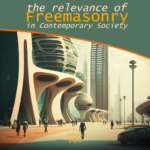 The Relevance of Freemasonry in Contemporary Society The role of Freemasonry in contemporary society is an indispensable one. Despite the challenges and misconceptions it faces, the organization remains steadfast in its humanitarian pursuits and commitment to personal growth and self-betterment. Through its efforts to evolve and adapt to the changing needs of its members and the world, Freemasonry continues to be a vital force in shaping a better future for all. |
 Has Freemasonry managed to revive and thrive after the darkness of the Pandemic? Robert Lomas gives us some (promising) insights. |
 21st Century Freemasonry – a Sign of the Times? A recent article in The Times of London highlighted the dilemma 21st Freemasonry is facing. In this article one Master Mason shares his views of the strengths, and the challenges of modern Masonry. |
 A concept that is both based on our Freemasonic rituals and what we understand as teamwork. This article by Chris Batty examines why teamwork in the lodge is the network that binds us. |
 Lebanese Freemasonry has been both witness to and sometimes participants in turbulent events and forces, which shaped and influenced their world. |
 Is a Masonic Tradition Necessary? Dealing with Masonic tradition is a complex subject that requires careful analysis in order to reach a balanced point on the best etymological definition and the set of discourses and practices, which often end up being presented as such, without, however, presenting bases that support them, often serving only as a discourse that restricts and controls the masses. Fernando Rodrigues de Souza debates this complex subject. |
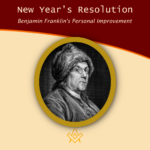 New Year's Resolution with Benjamin Franklin's Personal Improvement Are you ready for a new year's resolution challenge ? To accomplish his life’s goals, at 25 ( around 290 years ago ), Benjamin Franklin developed and committed himself to a personal improvement program that consisted of 13 virtues. You are invited to join me in practicing his daily routine for 2023. |
 The Alberta Masonic Higher Education Bursary Fund is to help the next generation of Albertans, our children and grandchildren, to obtain the education they need to lead successful lives and contribute to the welfare of mankind. As you can see from this little lesson of our history, education is truly a Masonic obligation. |
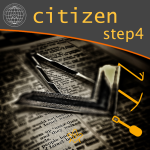 To be a Better Citizen of the World: Step 4 A value proposition for Pure Ancient Masonry as defined in terms of Citizenship; the allegories, symbolism and lessons are a blueprint for all Freemasons to be a better citizen of the world. |
 To be a Better Citizen of the World; Step 3 A value proposition for Pure Ancient Masonry as defined in terms of Citizenship; the allegories, symbolism and lessons are a blueprint for all Freemasons to be a better citizen of the world. |
 In connection with recent article about Freemasonry in the metaverse, we look at how an Egregore applies to Freemasonry in a digital world |
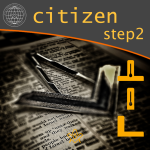 To be a Better Citizen of the World; Step 2 A value proposition for Pure Ancient Masonry as defined in terms of Citizenship; the allegories, symbolism and lessons are a blueprint for all Freemasons to be a better citizen of the world. |
 There are many brotherhoods in the world, and Freemasonry is one of the most significant and successful of them all. This article will be the focus two questions: the importance of brotherhood ? and is there room for improvement in Freemasonry? |
 Intergenerational relations in Masonry: challenges and possibilities Backed with scientific research, Professor Luiz Neto and Professor Alexandre Braune investigate the Intergenerational relations in Freemasonry and explores the challenges and opportunities. |
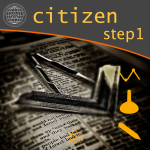 To be a Better Citizen of the World; Step 1 A value proposition for Pure Ancient Masonry as defined in terms of Citizenship; the allegories, symbolism and lessons are a blueprint for all Freemasons to be a better citizen of the world. |
 The Masonic Temple is a platform where both Freemasons and non-Masons, enthusiasts of real art and spiritual growth, connect to the new world of the metaverse. A Freemasonry in the metaverse project, based regular freemasonry principles. |
 Opportunity to fix the Sussex fudge Is there a value proposition for members, that under English Constitution Freemasonry, we have a 4 part offering; Entered Apprentice, Fellowcraft , Master Mason and Companion, conducted in a single craft lodge ? |
 Value Proposition of Freemasonry In addressing declining lodge membership and lack of attendance, we need to assess the value it offers to members. What is value, and what does it mean to you? |
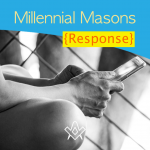 What is a 'Millennial' and what do they want from Freemasonry? You'll be surprised at the answers. |
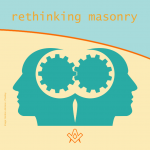 Let us help answer a fundamental question, from a confused newly raised brother asking “What does it all mean and where do I go from here?” |
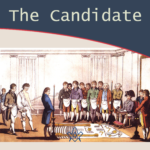 Written in 1930, much of the advice is still relevant today - although some may provoke further thought or debate! |
 Product Life Cycle of Freemasonry An inconvenient truth about the product life cycle of Freemasonry |
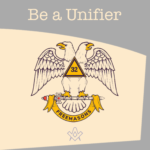 Freemasonry is local. This is where we need to start. We start with our Facebook friends, our neighbours, our colleagues, our lodges… |
 Freemasonry in the time of pandemic The Rule of Six. Localised lockdowns. Second wave? What do we do now?! The answer is simple - engage with members, promote Masonic education and get thinking outside the lodge. |
 The current functioning of the Masonic movement has some positive aspects and others that are blatantly backward and counterproductive. |
 What is a 'Millennial' and what do they want from Freemasonry? You'll be surprised at the answers. |
 How to improve your Lodge Membership Marketing Program. |
 The Anti-Social Impact of Social Media The 'dark side' of social media and its negative effect on our mental health |
 If Freemasonry cannot meet, is this an opportunity to make a change to how we do things? |
 Has your lodge accepted an unknown candidate from the internet? Third in a three-part series looking at the process to accepting candidates via the internet |
 Is the brother of a brother a brother ? Rights to visit - recognition and regularity re-evaluated. |
 The second article in the Unknown Candidate series - Outlining the social media marketing process to attract the unknown candidate to make that first enquiry |
 Ask a random Freemason the purpose of Freemasonry and the likely response will be to “make good men, better”. Research undertaken by James Justin Davis Pennsylvania Academy of Masonic Knowledge. |
 Has your lodge accepted an unknown candidate from the internet? First in a three-part series looking at the process to accepting candidates via the internet |
 Mental Health - Raising its awareness and how we as Freemasons throughout the entire UK can help our fellow brethren and their families when they need it. |
 Share one thought why freemasonry is relevant today - Open question posted on Facebook with a very wide range of responses from Brethren across the globe |
 The Tipping Point of Freemasonry Why do brothers lose interest in Freemasonry and what can we do to get that spark back? At what moment did our own thoughts begin to waver? |
masonic knowledge
to be a better citizen of the world
share the square with two brothers

click image to open email app on mobile device










